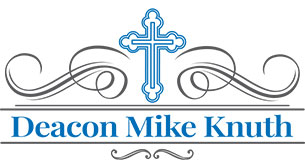I enjoy canoeing. My first canoe trip was a section of the Minnesota River with my brother, in a borrowed canoe, when we were in high school. It was just the two of us. The enjoyment of that trip has led me to make many other canoe trips.
 I have canoed through rapids, flood waters, lazy water, and the monotonous bend after bend that rivers take. I have canoed the wilderness lakes of the Boundary Waters in northern Minnesota. I have fought wind, rain, snow, hot sun, mud, and bugs. Despite the various conditions, good and not so good, the call of the wilderness and the challenges Mother Nature throws at me seem to draw me back. There is something about what lies beyond the next bend that compels me on. I am an adventurer who finds satisfaction and a sense of accomplishment when I set foot on land and load my canoe on top of the car after a trip.
I have canoed through rapids, flood waters, lazy water, and the monotonous bend after bend that rivers take. I have canoed the wilderness lakes of the Boundary Waters in northern Minnesota. I have fought wind, rain, snow, hot sun, mud, and bugs. Despite the various conditions, good and not so good, the call of the wilderness and the challenges Mother Nature throws at me seem to draw me back. There is something about what lies beyond the next bend that compels me on. I am an adventurer who finds satisfaction and a sense of accomplishment when I set foot on land and load my canoe on top of the car after a trip.
Our spiritual life and journey can be a lot like a river. Having basic skills, maps, gear, and planning, are all a part of the journey in both a canoe trip and our spiritual life. To help us with this analogy I am going to use something Bishop Robert Barron wrote. His image of the river can be most challenging and insightful.
“John Henry Newman said that what gives a river verve and energy is precisely the firmness of its banks. If one were to knock down those banks, the river would promptly spread out into a lazy lake, serene perhaps, but lacking in direction.
“Our moral and spiritual lives are something like a river:  provided they are delimited by clear boundaries and objective values; they will remain purposive and invigorated. In the name of liberty and self-expression, our culture is frenetically knocking down every restriction imaginable – and the predictable result is that the river is broadening out into that lazy lake of subjectivism and indifferentism, what I have called the M’eh culture. We might be blandly tolerant of one another, but we lack common purpose. We are no longer adventurers on the fast-flowing river; rather we are individuals, floating languidly on separate air-mattresses.
provided they are delimited by clear boundaries and objective values; they will remain purposive and invigorated. In the name of liberty and self-expression, our culture is frenetically knocking down every restriction imaginable – and the predictable result is that the river is broadening out into that lazy lake of subjectivism and indifferentism, what I have called the M’eh culture. We might be blandly tolerant of one another, but we lack common purpose. We are no longer adventurers on the fast-flowing river; rather we are individuals, floating languidly on separate air-mattresses.
“The laws, teachings, demands, and prescriptions of the Church are not threats to our flourishing. On the contrary they are the very restrictions that make meaningful action possible. They are the banks that ensure that the river is actually going somewhere. Accordingly, they ought to be embraced as the condition for the possibility of an authentic humanism.”
 The Holy Spirit is the “Master of the Interior Life” (CCC #1995). We need to allow Him, during this last month of the summer, to help us stop paddling and to look at the waters of our spiritual life. Bishop Barron’s words, challenge us to examine the influences that the M’eh river culture has on us; to explore the attitudes that form our river’s banks; and to ask ourselves what we are embracing on this journey of life.
The Holy Spirit is the “Master of the Interior Life” (CCC #1995). We need to allow Him, during this last month of the summer, to help us stop paddling and to look at the waters of our spiritual life. Bishop Barron’s words, challenge us to examine the influences that the M’eh river culture has on us; to explore the attitudes that form our river’s banks; and to ask ourselves what we are embracing on this journey of life.
For Reflection:
What shapes my river’s course? Am I growing closer to Christ and learning to hunger more for Him or concerned more about my self-expression? Am I a floater or an adventurer when it comes to the river of my life? What is the “something” that compels me forward in the adventure of my spiritual life?
Prayer:
Come Holy Spirit, Master of the Interior Life, and guide the canoe of my soul through the M’eh river cultures I face each day. Bring me safely to the shores of authentic humanism, as a disciple of Jesus.
(blogged August 15, 2024)
Subscribe to my newsletter!



